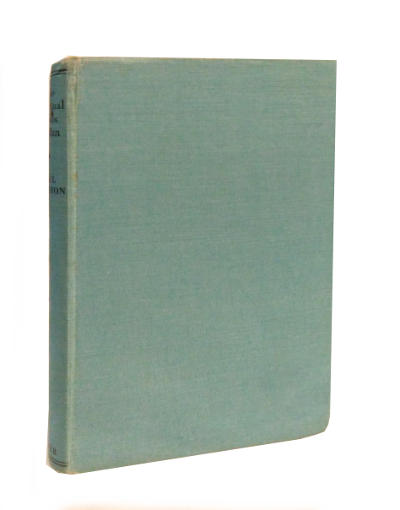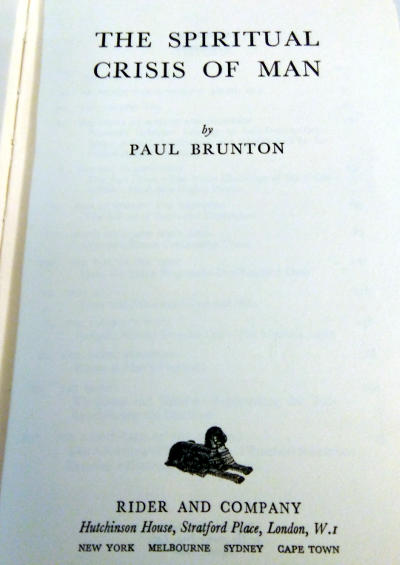Contents:
The Crisis in Society
No Better World without Better Men!
The Machine Age
The Crisis of Science and Intellect
The Ego in Evolution
Man in Sorrow and Happiness
Man’s Will and God’s Will: Common Errors Concerning Them
The Evil in our Time
God Is!
The Prophet’s Voice
Our Inner Resources
The Quest
The Silent Call of the Overself
About the author (from Wikipedia):
Paul Brunton is the pen name of Raphael Hurst (21 October 1898 – 27 July 1981), a British theosophist and spiritualist. He is best known as one of the early popularizers of Neo-Hindu spiritualism in western esotericism, notably via his bestselling A Search in Secret India (1934).
Brunton was a proponent of a doctrine of “Mentalism”, or Oriental Mentalism to distinguish it from subjective idealism of the western tradition. Brunton expounds his doctrine of Mentalism in The Hidden Teachings Beyond Yoga (1941) and in The Wisdom of the Overself (1943).
Hurst was born in London in 1898. He served in a tank division during the First World War, and later devoted himself to mysticism and came into contact with Theosophists. He married Karen Augusta Tuttrup in 1921, with whom he had a son, Kenneth Thurston Hurst (b. 1923). After his wife had an affair with his friend Leonard Gill, the marriage ended in divorce in 1926, but Hurst remained on friendly terms with his ex-wife and with Gill. He was a bookseller and journalist, and wrote under various pseudonyms, including Raphael Meriden and Raphael Delmonte. Being partner of an occult bookshop, The Atlantis Bookshop, in Bloomsbury, Hurst came into contact with both the literary and occult British intelligentsia of the 1920s.
In 1930, Hurst embarked on a voyage to India, which brought him into contact with Meher Baba, Vishuddhananda Paramahansa, Paramacharya of Kancheepuram and Ramana Maharshi. At the Paramacharya’s insistence, he met Bhagavan Ramana Maharshi, which led to a turn of events culminating in revealing Ramana to the western world. Hurst’s first visit to Sri Ramana’s ashram took place in 1931. During this visit, Hurst was accompanied by a Buddhist bhikshu, formerly a military officer but meanwhile known as Swami Prajnananda, the founder of the English ashram in Rangoon. Hurst asked several questions, including “What is the way to God-realization?” and Maharshi said: “Vichara, asking yourself the ‘Who am I?’ enquiry into the nature of your Self.”
Paul Brunton was the pseudonym under which A Search in Secret India was published in 1934. The book became a bestseller, and Hurst afterwards stuck to publishing under this name.
Brunton has been credited with introducing Ramana Maharshi to the West through his books A Search in Secret India and The Secret Path.



